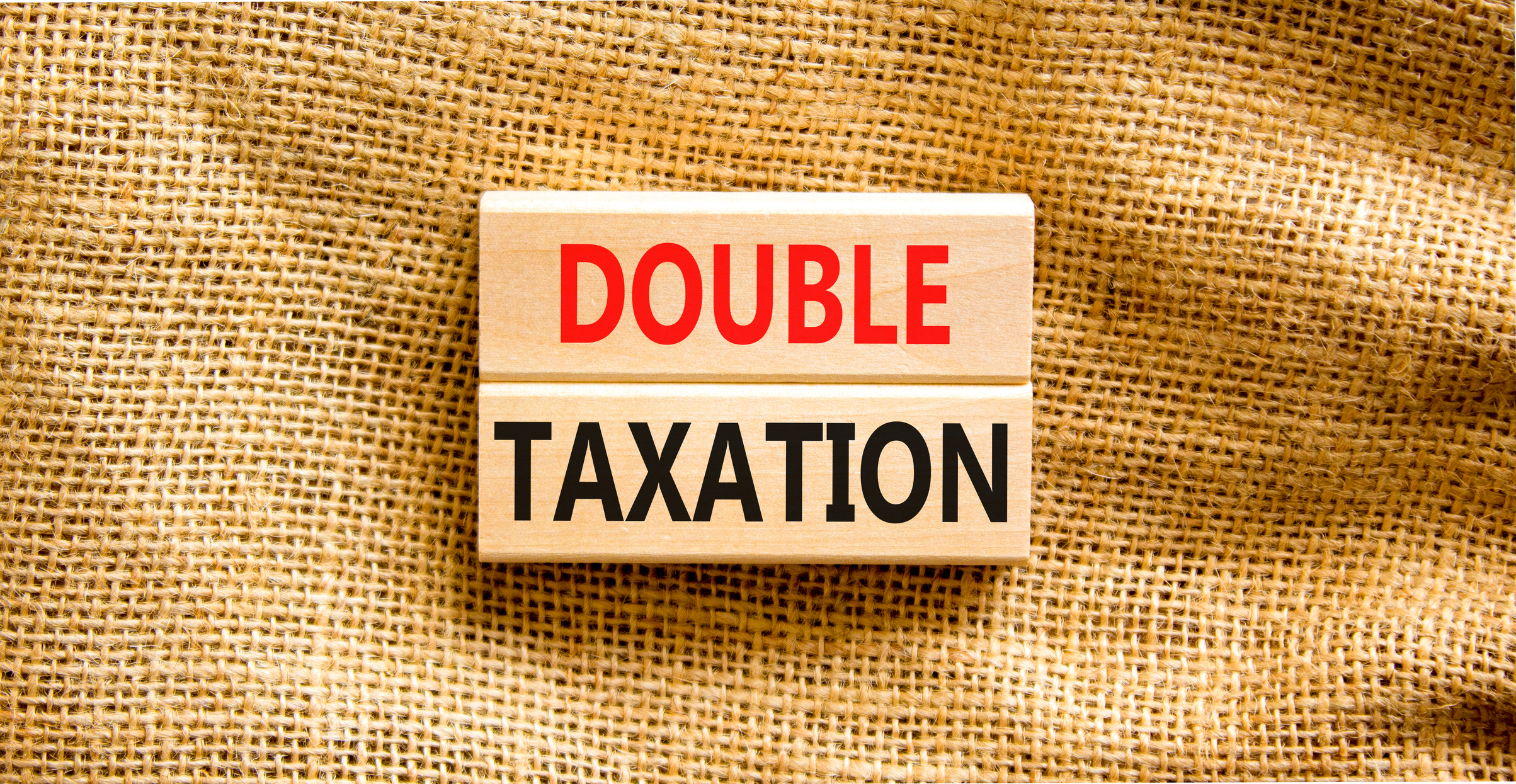Another State Rebels Against Trump’s New 2025 Tax Law: What Now?
Even if states adopt tax policies in the so-called ‘big beautiful bill,’ lawmakers may have workarounds at their fingertips.


Profit and prosper with the best of Kiplinger's advice on investing, taxes, retirement, personal finance and much more. Delivered daily. Enter your email in the box and click Sign Me Up.
You are now subscribed
Your newsletter sign-up was successful
Want to add more newsletters?

Delivered daily
Kiplinger Today
Profit and prosper with the best of Kiplinger's advice on investing, taxes, retirement, personal finance and much more delivered daily. Smart money moves start here.

Sent five days a week
Kiplinger A Step Ahead
Get practical help to make better financial decisions in your everyday life, from spending to savings on top deals.

Delivered daily
Kiplinger Closing Bell
Get today's biggest financial and investing headlines delivered to your inbox every day the U.S. stock market is open.

Sent twice a week
Kiplinger Adviser Intel
Financial pros across the country share best practices and fresh tactics to preserve and grow your wealth.

Delivered weekly
Kiplinger Tax Tips
Trim your federal and state tax bills with practical tax-planning and tax-cutting strategies.

Sent twice a week
Kiplinger Retirement Tips
Your twice-a-week guide to planning and enjoying a financially secure and richly rewarding retirement

Sent bimonthly.
Kiplinger Adviser Angle
Insights for advisers, wealth managers and other financial professionals.

Sent twice a week
Kiplinger Investing Weekly
Your twice-a-week roundup of promising stocks, funds, companies and industries you should consider, ones you should avoid, and why.

Sent weekly for six weeks
Kiplinger Invest for Retirement
Your step-by-step six-part series on how to invest for retirement, from devising a successful strategy to exactly which investments to choose.
You might think that tax law changes are “over and done” this time of year. After all, the GOP reconciliation legislation, nicknamed the ‘One Big Beautiful Bill’ (OBBB), establishes several provisions that all states must abide by. Right?
Well, actually, some state lawmakers are already looking for ways to avoid some of the policy revisions enacted in the OBBB — and they might do so as early as their next state legislative session.
For instance, while the OBBB phases out the federal electric vehicle (EV) tax credit very soon, California officials are trying to enact a state EV tax break that could help counteract the elimination.
From just $107.88 $24.99 for Kiplinger Personal Finance
Become a smarter, better informed investor. Subscribe from just $107.88 $24.99, plus get up to 4 Special Issues

Sign up for Kiplinger’s Free Newsletters
Profit and prosper with the best of expert advice on investing, taxes, retirement, personal finance and more - straight to your e-mail.
Profit and prosper with the best of expert advice - straight to your e-mail.
Meanwhile, many states have passed workarounds to the federal state and local tax (SALT) deduction cap, and still others may never accept the OBBB as part of their state tax code.
What does all of this mean for you and your tax bill? Here’s more of what you need to know.
Related: Emergency Tax Bill Ends $6,000 Senior Deduction and Tip, Overtime Tax Breaks in D.C.
Gavin Newsom calls for EV tax credit replacement
The latest challenge to the new Trump tax law began before the OBBB was officially signed into law on July 4, 2025.
In June, President Trump enacted three resolutions preventing California from setting stricter emissions standards than those established by the federal government.
Governor Gavin Newsom issued an executive order in response (in addition to a lawsuit), directing California agencies to devise strategies for promoting zero-emission vehicles. And late last month, the California Air Resources Board (CARB) delivered on that directive.
CARB, which is tasked with the state’s public welfare and ecological resources, has outlined a strategy to support clean transportation production. The report includes:
- Backfilling federal tax credits. CARB intends to sustain sales of new and used zero-emission electric vehicles by utilizing state funds for point-of-sale rebates, vouchers, and other credits.
- Developing more educational pathways to EV jobs. The plan also aims to facilitate equitable access to college courses, apprenticeships, and certification programs within the clean transportation sector.
If accomplished, the items outlined in the CARB report could counteract the expiring EV tax credits in the OBBB. So even when the federal EV tax credit goes away, California residents may still reap the benefits of a state tax break if it becomes law.
SALT deduction cap: State workarounds
The OBBB temporarily raises the SALT deduction cap to $40,000 from $10,000. This means itemizing eligible taxpayers below a certain income limit may only deduct up to this amount on their federal income tax return until 2029 (with an annual 1% increase beginning in 2026).
After that time, the cap reverts to the Tax Cuts and Jobs Act (TCJA) cap of just $10,000.
However, many states have sought strategies to circumvent the SALT cap ever since the TCJA set a limit. The principal avoidance method is through Pass-Through Entity Taxes (PTETs).
- PTETs enable businesses like limited liability companies, S corporations, and partnerships to pay state taxes at the entity level instead of at the individual level.
- This effectively bypasses the SALT cap of $10,000, as this limit does not apply to entity-level returns.
- According to the Tax Foundation, 36 states have adopted PTETs since 2018, the year the TCJA was enacted.
As reported by Kiplinger, taxpayers in high-property tax states are often hit the hardest by a SALT deduction cap. And as property taxes are one of the top hidden home costs among buyers with regrets, states may continue to search for ways to circumvent the federal SALT limit.
Does my state have to accept Trump’s tax law?
Even though the OBBB is federal law, it doesn’t have to be part of state tax laws. That’s because states have three options when it comes to adopting current federal tax policy:
- Rolling conformity. States can automatically follow the latest federal rules for the current tax year. There are approximately 20 states and the District of Columbia that follow this standard.
- Static conformity. About 17 states currently conform to federal tax law as of a specific date, according to the Tax Foundation. Typically, static states update their conformity date every year through legislation.
- Selective conformity. Four states can choose to have selective conformity, meaning they can “pick and choose” which parts of the federal tax law to follow, rather than adopting the tax code in its entirety.
The states with selective conformity — Arkansas, Mississippi, New Jersey, and Pennsylvania — have the most relative leeway in determining how much of the federal tax code to accept in their state individual income tax codes. They may choose “the best parts” of the OBBB for their constituents, while leaving the rest on the table.
And although most state legislature sessions had closed by the time OBBB was passed, that hasn’t stopped some states, like Colorado and Louisiana, from calling special sessions to discuss the implications of the new federal tax law on state taxpayers.
During state legislative special sessions, lawmakers can enact new laws to sometimes lessen the impact of new federal legislation.
With many states having depleted COVID-era federal aid, and the OBBB potentially lowering state revenue projections, 2026 could be an interesting (and perhaps tumultuous) year for state tax legislation. Stay tuned.
Read More
- Five States Are Worse Off After Trump’s Cuts to SNAP and Medicaid
- Could Tax on Overtime End for Your State This Year?
- New SALT Deduction Could Save Californians Thousands
- States Considering Elimination of Taxes on Tips
Profit and prosper with the best of Kiplinger's advice on investing, taxes, retirement, personal finance and much more. Delivered daily. Enter your email in the box and click Sign Me Up.

Kate is a CPA with experience in audit and technology. As a Tax Writer at Kiplinger, Kate believes that tax and finance news should meet people where they are today, across cultural, educational, and disciplinary backgrounds.
-
 Quiz: Do You Know How to Avoid the "Medigap Trap?"
Quiz: Do You Know How to Avoid the "Medigap Trap?"Quiz Test your basic knowledge of the "Medigap Trap" in our quick quiz.
-
 5 Top Tax-Efficient Mutual Funds for Smarter Investing
5 Top Tax-Efficient Mutual Funds for Smarter InvestingMutual funds are many things, but "tax-friendly" usually isn't one of them. These are the exceptions.
-
 AI Sparks Existential Crisis for Software Stocks
AI Sparks Existential Crisis for Software StocksThe Kiplinger Letter Fears that SaaS subscription software could be rendered obsolete by artificial intelligence make investors jittery.
-
 How to Open Your Kid's $1,000 Trump Account
How to Open Your Kid's $1,000 Trump AccountTax Breaks Filing income taxes in 2026? You won't want to miss Form 4547 to claim a $1,000 Trump Account for your child.
-
 In Arkansas and Illinois, Groceries Just Got Cheaper, But Not By Much
In Arkansas and Illinois, Groceries Just Got Cheaper, But Not By MuchFood Prices Arkansas and Illinois are the most recent states to repeal sales tax on groceries. Will it really help shoppers with their food bills?
-
 7 Bad Tax Habits to Kick Right Now
7 Bad Tax Habits to Kick Right NowTax Tips Ditch these seven common habits to sidestep IRS red flags for a smoother, faster 2026 income tax filing.
-
 New Plan Could End Surprise Taxes on Social Security 'Back Pay'
New Plan Could End Surprise Taxes on Social Security 'Back Pay'Social Security Taxes on Social Security benefits are stirring debate again, as recent changes could affect how some retirees file their returns this tax season.
-
 Living in One State, Working in Another: How to Avoid a Tax Season Headache
Living in One State, Working in Another: How to Avoid a Tax Season HeadacheState Tax Living and working in two states can take a heavy toll on your paycheck and give you a headache come tax time. Here's what to know.
-
 New Gambling Tax Rule Impacts Super Bowl 2026 Bets
New Gambling Tax Rule Impacts Super Bowl 2026 BetsTaxable Income When Super Bowl LX hype fades, some fans may be surprised to learn that sports betting tax rules have shifted.
-
 Should You Do Your Own Taxes This Year or Hire a Pro?
Should You Do Your Own Taxes This Year or Hire a Pro?Taxes Doing your own taxes isn’t easy, and hiring a tax pro isn’t cheap. Here’s a guide to help you figure out whether to tackle the job on your own or hire a professional.
-
 Trump $10B IRS Lawsuit Hits an Already Chaotic 2026 Tax Season
Trump $10B IRS Lawsuit Hits an Already Chaotic 2026 Tax SeasonTax Law A new Trump lawsuit and warnings from a tax-industry watchdog point to an IRS under strain, just as millions of taxpayers begin filing their 2025 returns.